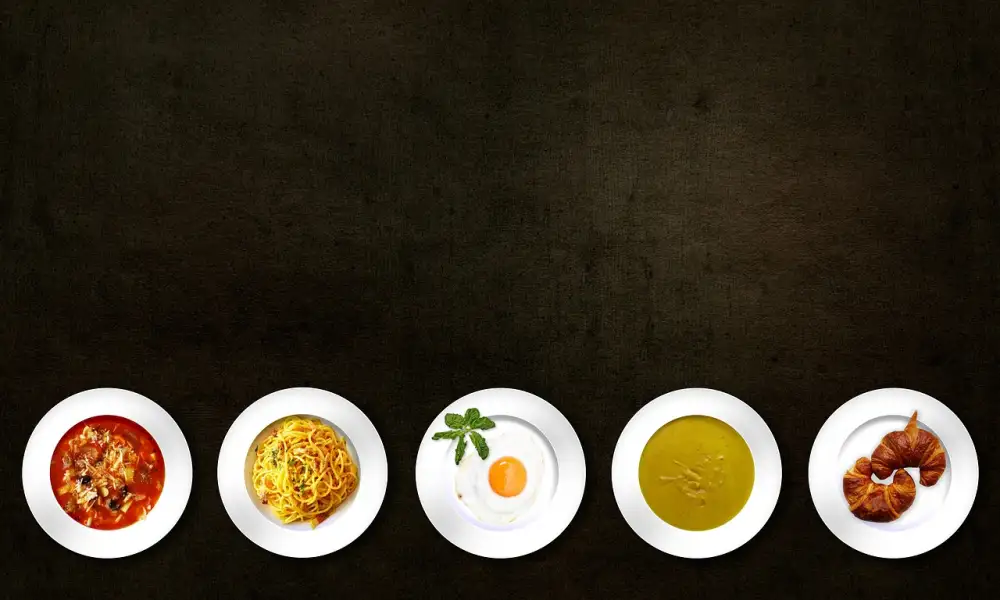Master the Art of Boiling the Perfect Egg: A Step-by-Step Guide for Egg-cellent Results

The humble boiled egg is a versatile and delicious addition to any meal. Whether you enjoy it for breakfast, as a snack, or as part of a salad, mastering the art of boiling the perfect egg is essential. A perfectly boiled egg has a creamy yolk and a tender white, making it a delightful treat for your taste buds. In this step-by-step guide, we will take you through the process of achieving egg-cellent results every time you boil an egg. So let's dive in and learn how to create the perfect boiled egg that will leave you craving for more!
Selecting the right eggs for boiling
Selecting the right eggs for boiling is crucial to achieving the perfect result. When it comes to boiling eggs, freshness is key. Choose eggs that are no more than a week old for optimal results. Fresh eggs have firmer whites and yolks that hold their shape better during cooking. Additionally, make sure the eggs are free from cracks or any signs of damage as this can affect the cooking process. By selecting fresh and intact eggs, you set yourself up for success in mastering the art of boiling the perfect egg.
Preparing the eggs for boiling
Preparing the eggs for boiling is an essential step in achieving the perfect boiled egg. Start by selecting fresh eggs that are free from cracks or any signs of damage. Gently place the eggs in a single layer in a saucepan, ensuring they have enough space to move around.
Next, fill the saucepan with cold water, covering the eggs completely. Adding a pinch of salt to the water can help prevent cracking and make peeling easier later on. Let the eggs sit in the water for a few minutes before proceeding.
To ensure even cooking, it's important to bring the water to a gentle boil gradually. Place the saucepan on medium heat and allow it to come to a simmer slowly. Avoid rapid boiling as it can cause the eggs to bounce around and potentially crack.
Once the water reaches a gentle boil, reduce the heat slightly and let it continue simmering for about 8-10 minutes for medium-sized eggs. Adjust the cooking time based on your preference for soft or hard-boiled eggs.
While the eggs are simmering, prepare an ice bath by filling a large bowl with cold water and ice cubes. This will stop the cooking process and help cool down the eggs quickly.
After the desired cooking time has elapsed, carefully transfer each egg using a slotted spoon into the ice bath. Allow them to sit in this icy oasis for at least 5 minutes, ensuring they are completely cooled before peeling.
Preparing your eggs properly sets you up for success when it comes to achieving that perfectly boiled egg with a creamy yolk and tender whites. So take your time during this crucial step and get ready to enjoy egg-cellent results!
Boiling the eggs to perfection
Boiling the eggs to perfection is a crucial step in achieving the perfect boiled egg. Follow these steps to ensure your eggs are cooked just right.
1. Place the eggs in a single layer in a saucepan or pot. Make sure they are not overcrowded, as this can lead to uneven cooking.
2. Add enough cold water to the pot to cover the eggs by about an inch.
3. Place the pot on the stove over medium-high heat and bring the water to a rolling boil.
4. Once the water reaches a boil, reduce the heat slightly to maintain a gentle simmer.
5. Cook the eggs for the desired amount of time based on your preferred level of doneness. For soft-boiled eggs with runny yolks, cook for 4-5 minutes. For medium-boiled eggs with slightly set yolks, cook for 6-7 minutes. And for hard-boiled eggs with fully set yolks, cook for 9-12 minutes.
6. It's important to keep an eye on the timer and avoid overcooking, as this can result in tough and rubbery whites or dry and chalky yolks.
7. Once the desired cooking time is reached, carefully remove the eggs from the pot using a slotted spoon and transfer them immediately into a bowl of ice water.
8. Let the eggs sit in the ice water bath for at least 5 minutes to cool down rapidly and stop any further cooking.
By following these steps, you'll be able to achieve perfectly boiled eggs every time – with tender whites and creamy yolks that are cooked exactly how you like them.
Timing the boiling process
Timing the boiling process is crucial to achieving the perfect boiled egg. The cooking time will determine whether you get a soft, medium, or hard-boiled egg. For a soft-boiled egg with a runny yolk, boil for 4-5 minutes. If you prefer a slightly firmer yolk, go for 6-7 minutes for a medium-boiled egg. For a fully cooked, hard-boiled egg with a firm yolk, boil for 9-12 minutes. Keep in mind that these times may vary depending on the size of the eggs and your desired level of doneness. It's best to experiment and find your own preferred timing through trial and error.
Cooling and peeling the boiled eggs
Once the eggs have finished boiling, it is crucial to cool them properly before attempting to peel. This will ensure that the shells come off easily without damaging the delicate egg whites.
To cool the boiled eggs, carefully transfer them from the pot to a bowl filled with ice water using a slotted spoon. Let them sit in the ice water for at least 5 minutes, allowing them to cool down completely.
The cold water shock helps create a gap between the egg white and shell, making it easier to peel. Gently tap each egg on a hard surface to crack the shell all around. Then, starting from the wider end of the egg, peel off the shell under running water or in a bowl of water.
Peeling under running water can help remove any remaining bits of shell more effectively. Take your time while peeling and be cautious not to damage the smooth surface of the boiled egg.
Once peeled, place the perfectly boiled eggs on a plate lined with paper towels to absorb any excess moisture. Pat them dry gently before serving or storing.
Remember that freshly boiled eggs are easier to peel than those left sitting for too long. So it's best to cool and peel them immediately after boiling for optimal results.
Now that you have mastered cooling and peeling boiled eggs flawlessly, let's move on to how you can serve and enjoy these delightful treats!
Serving and enjoying the perfect boiled egg
Serving and enjoying the perfect boiled egg is a delightful experience that can be enjoyed in various ways. One classic option is to simply sprinkle some salt and pepper on the egg, allowing its natural flavors to shine through. Another popular choice is to slice the boiled egg and use it as a topping for salads or sandwiches. The creamy yolk adds a rich and satisfying element to any dish. For those who prefer a bit of spice, a dash of hot sauce or a sprinkle of paprika can elevate the flavor profile of the boiled egg. Additionally, serving the boiled egg alongside some crusty bread or toast makes for a hearty and comforting breakfast or snack. Whatever your preference, take the time to savor each bite and appreciate the simplicity and versatility of this humble yet delicious treat.
Tips and variations for the perfect boiled egg
Tips and Variations for the Perfect Boiled Egg:
1. Experiment with cooking times: If you prefer a softer yolk, reduce the boiling time by a minute or two. For a firmer yolk, increase the boiling time slightly.
2. Add flavor to your eggs: Enhance the taste of your boiled eggs by adding a pinch of salt, pepper, or even some herbs and spices to the boiling water. This will infuse the eggs with delicious flavors.
3. Try different egg sizes: While medium-sized eggs are commonly used for boiling, don't be afraid to experiment with larger or smaller eggs. Just remember to adjust the cooking time accordingly.
4. Make deviled eggs: Once you've mastered the art of boiling eggs, take it one step further by making deviled eggs. Simply slice the boiled eggs in half, remove the yolks, mix them with mayonnaise and seasonings, then spoon the mixture back into the egg whites for a tasty appetizer.
5. Create colorful Easter eggs: Boiling eggs is not just about enjoying them as food; it can also be a fun activity for kids during Easter. Use natural dyes like beet juice or turmeric to create vibrant colors on your boiled eggs.
6. Serve with accompaniments: Elevate your boiled egg experience by serving them with toast soldiers, buttered bread slices that can be dipped into the soft yolk, or alongside a fresh salad for a nutritious meal.
Remember, practice makes perfect when it comes to boiling eggs. Don't be discouraged if your first few attempts aren't flawless – keep trying different techniques until you find what works best for you. With time and patience, you'll become an expert at achieving that perfectly boiled egg every time!
Boiling the perfect egg may seem like a simple task, but it requires attention to detail and precision. By following the steps outlined in this guide, you can achieve egg-cellent results every time.
Remember to select fresh eggs for boiling, as they will yield better results. Properly preparing the eggs by gently piercing the shells will prevent them from cracking during boiling. Boil the eggs for the appropriate amount of time based on your desired level of doneness.
Timing is crucial when it comes to boiling eggs, so make sure to use a timer and keep an eye on the clock. Once boiled, immediately transfer them to an ice bath for quick cooling and easy peeling.
The joy of enjoying a perfectly boiled egg lies not only in its taste but also in its presentation. Serve your masterpiece with a sprinkle of salt and pepper or get creative with toppings like avocado slices or smoked salmon.
For those looking to take their boiled eggs to the next level, consider experimenting with different cooking times to achieve soft-boiled or hard-boiled variations. You can also add flavor by infusing herbs or spices into the water during boiling.
In conclusion, mastering the art of boiling eggs is a skill that any food enthusiast should have in their culinary repertoire. With practice and attention to detail, you can consistently create delicious and visually appealing boiled eggs that are sure to impress. So go ahead, grab some fresh eggs, and start perfecting your technique today!
Published: 26. 11. 2023
Category: Food



